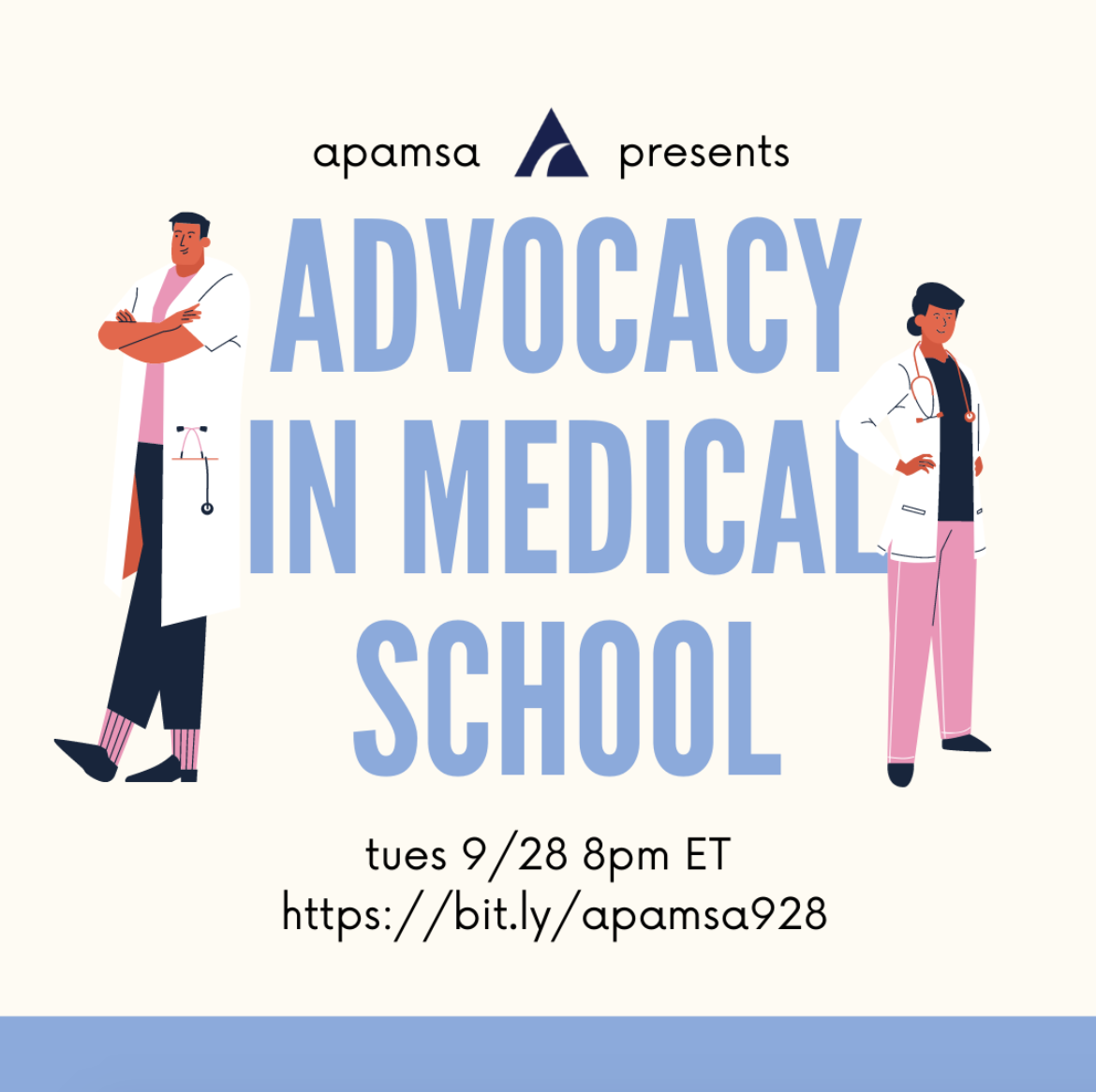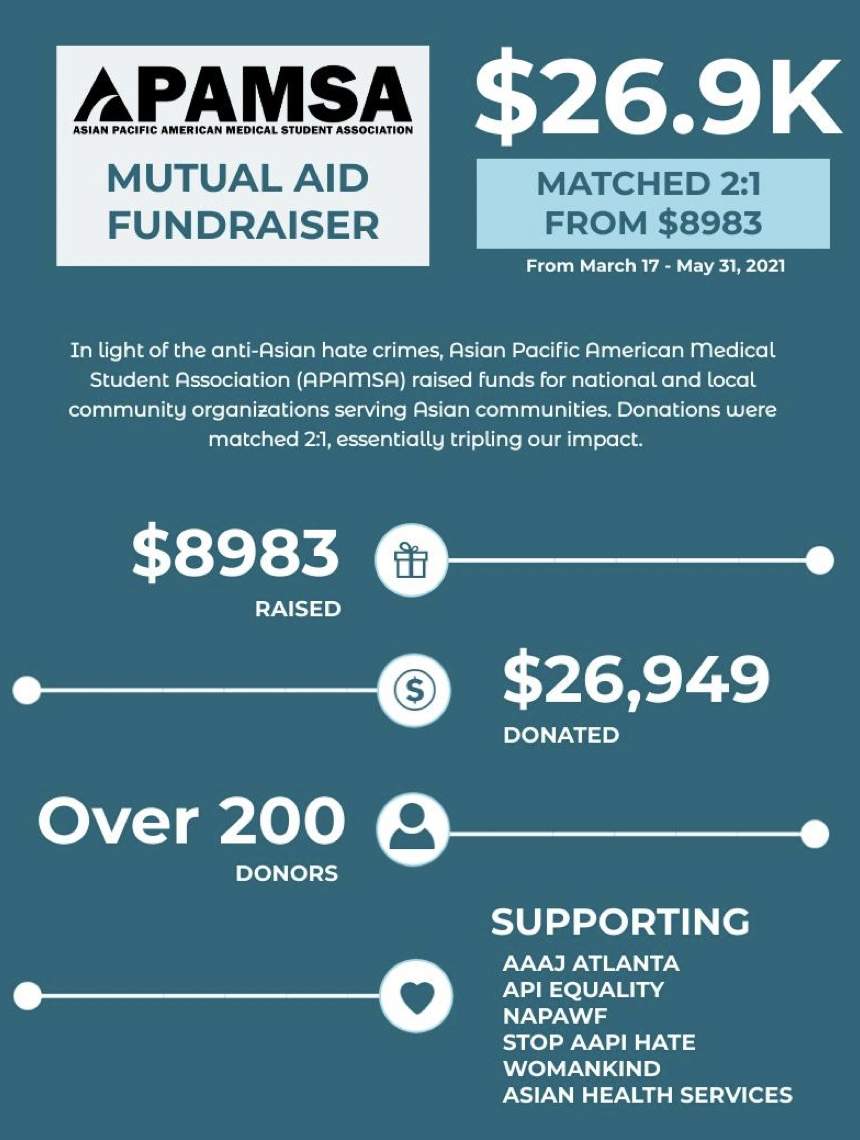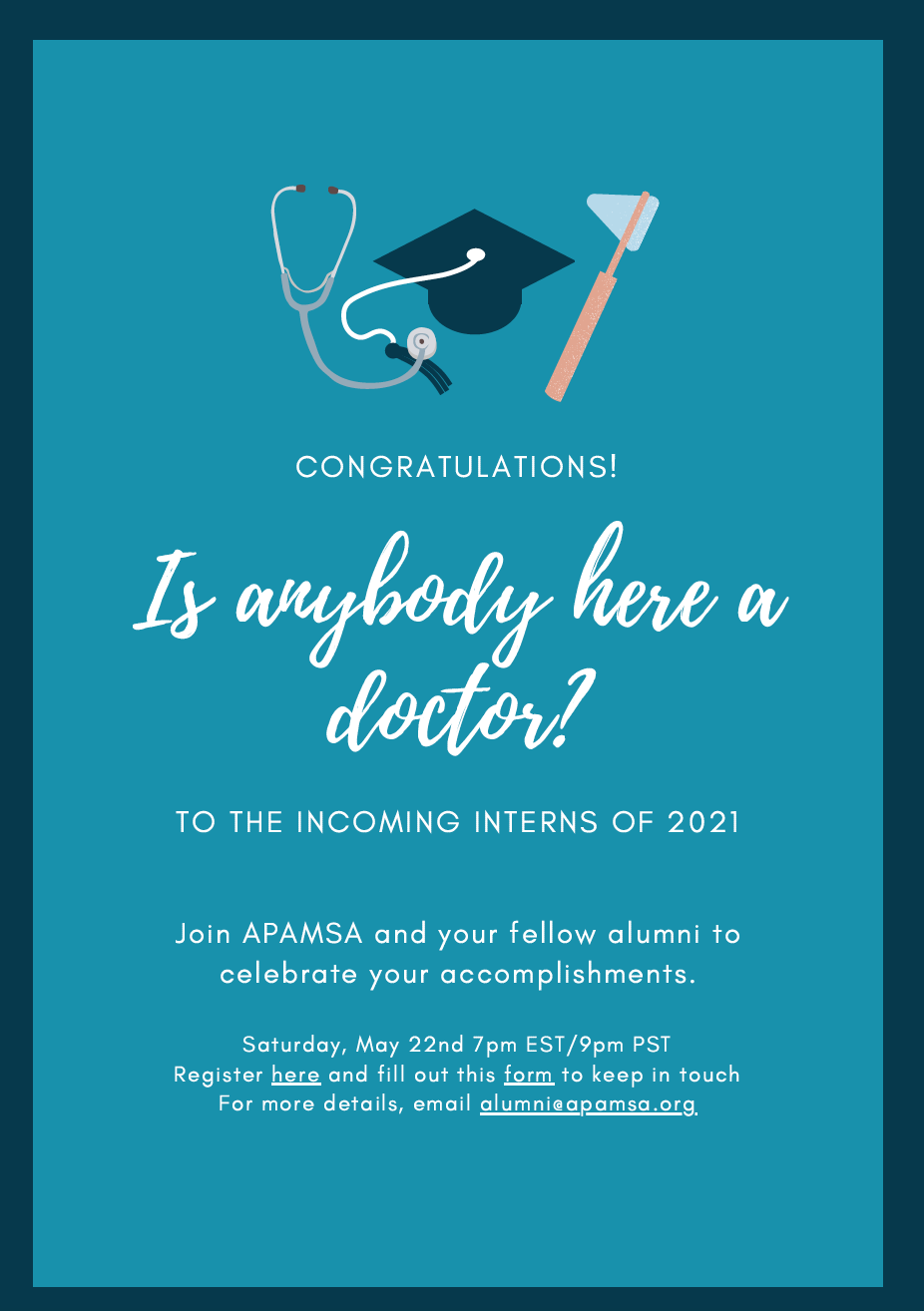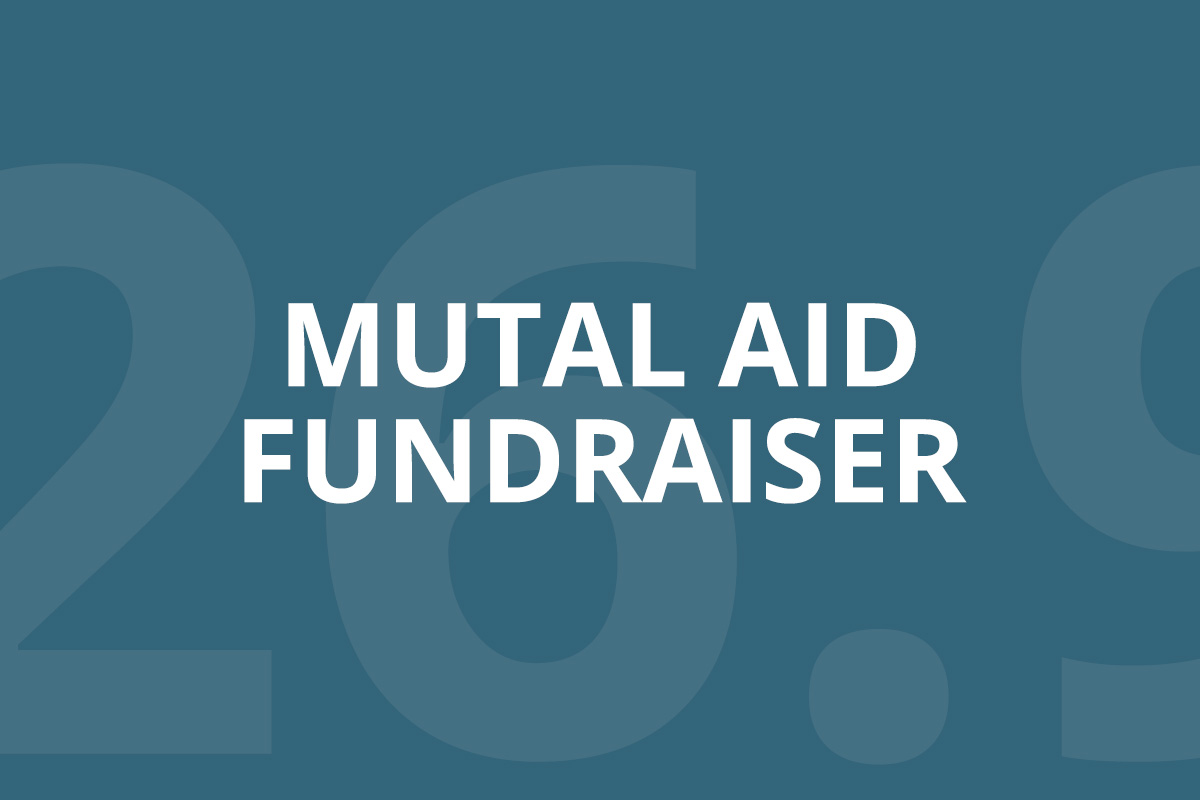Monthly Chapter Capture
MCCs detail your chapter’s activity for each month that’s due the 3rd of every following month and can be submitted HERE
-
This is a form REQUIRED for a chapter to maintain active status. Reactivation fees may be necessary after missing >3 captures, however you may back submit MCCs at any time. MCC submissions are also used to select events to feature on the APAMSA newsletter, and we also use them to select Chapter Awards at the yearly APAMSA National Conference.
-
Activity includes chapter meetings, fundraising events, volunteer events, etc. If you have no activity/events, the form is still to be submitted (most of the sections will be empty). A late submission is better than no submission!
MCC Tips
-
Include photos/videos with your events if you can!
-
See below for Frequently Asked Questions (FAQ).
MCC FAQ
-
What is the Monthly Chapter Capture?
-
A chance to request support from national/regional board, to share exciting news/events from your chapter and to give feedback!
-
-
Where can I access the form?
-
Issues with emails?
-
Update your roster by emailing database@apamsa.org. For other support, email membership@apamsa.org
-
-
What is this used for?
-
Chapter awards, allocation of resources/support, sponsorship, project ideas, social media, and more!
-
-
How long will this take?
-
< 10 min. if you have events/news to share with us and/or if you have support to request! < 3 min. if you have neither.
-
-
Should I submit if I don’t have anything new to share?
-
Yes! We want to make sure that we haven’t lost communication. In this case, the capture takes < 3 mins!
-
-
What happens after?
-
A pdf of your responses will be sent to you and the national and regional board.
-
Your regional director will contact you for any requested support. Please email them or the national membership director for any issues.
-
Your event may be selected to be featured, so stay tuned to APAMSA emails, social media, and website!
-
Get to Know Us
Get to know us more through these amazing videos!
Follow us on Facebook to get the most updated information on our events/activities and meet other members!
Join (and ask your members to join) your Region’s FB to get connected to other APAMSA members! You can also check out what other Regions are doing via their groups.
Advocacy in Medical School
DATE: September 28, 2021
TIME: 5:00 PM-6:00 PM PST/ 8:00 PM-9:00 PM ET
LOCATION: Online. Free.
REGISTER: https://bit.ly/apamsa928

Interested in advocacy but not sure where to start?
Join the APAMSA Advocacy Branch for a panel of student advocates who will introduce their work, how they got involved, and how you can get plugged in to be part of the change for our communities!
Contact Us
Questions? Email membership@apamsa.org!
Statement on Current Events in Afghanistan
Current events in Afghanistan and the impending humanitarian crisis with the likelihood of increased number of displaced people
Facing crisis and emergency levels of needed humanitarian assistance, Afghanistan’s needs have risen sharply because of conflict and COVID-19. Since the end of May 2021, the number of people internally displaced because of conflict and in need of immediate humanitarian aid has increased by 550,000, adding to the already 3.5 million internally displaced people before this year (1).
As future medical professionals, we are deeply concerned about the people of Afghanistan and the threat posed to their rights, safety, and ability to access health care. We support the World Health Organization’s call to ensure access to health care during this turbulent time (2-3).
Many members of the Asian Pacific American Medical Student Association are descendants of refugees that have fled past conflict, famine, and poverty. Southeast Asian refugees represent one of the largest refugee communities to resettle in the United States after being forcefully displaced by war and its aftermath in the 1970s. While there are differences regarding the context of what’s happening in Afghanistan vs. Southeast Asia, the desire to pursue safety and opportunity are shared between both groups regardless of time and place (4-7).
We urge our government to take swift action to ensure the safety of refugees, including but not limited to: keeping borders open to those fleeing from violence and persecution, permitting permanent resettlement in the United States, and ensuring refugees feel safe and supported by ending the ongoing deportations of all undocumented immigrants regardless of country of origin (8-9).
APAMSA has long supported providing culturally and linguistically relevant resources, including but not limited to financial assistance and mental health support. Government and nonprofit entities, especially those involved in healthcare, must commit to Afghanistan refugees for years to come.
Saturday marks the 20th anniversary of the horrific terrorist attacks on the World Trade Center. Nearly 3,000 people lost their lives on that fateful day. Let’s honor their memory by committing to being a country inclusive of diverse backgrounds committed toward building mutual respect and support that can resist hate and divisiveness in all of its forms.
For questions or concerns, please reach out to rapidresponse@apamsa.org.
- https://www.washingtonpost.com/world/2021/08/20/afghanistan-internally-displaced-crisis/
- https://www.who.int/emergencies/situations/afghanistan-crisis
- https://www.reuters.com/world/asia-pacific/un-refugee-agency-says-afghans-risk-have-no-clear-way-out-2021-08-20/
- https://www.nbcnews.com/news/asian-america/vietnamese-american-refugees-witnessed-fall-saigon-urge-us-accept-afgh-rcna1708
- https://www.searac.org/programming/national-state-policy-advocacy/immigration/
Statement on Hurricane Ida
On August 29th, Hurricane Ida made landfall on the Gulf Coast. Its impact was particularly felt in Louisiana, making it the second most intense hurricane to hit the state after Hurricane Katrina of August 2005. More than a million people in Louisiana currently have no power. There have been reports of infrastructural damage and heavy flooding in coastal areas. This is more apparent within healthcare, as local hospitals’ capacities to admit victims of Hurricane Ida are being pushed to near full capacity from the ongoing COVID-19 surge.
As the storm progressed north, devastation has also been felt throughout the East Coast, particularly New Jersey, New York, and Philadelphia. As of September 3rd, about 4.5 million people on the East Coast remain under flood warnings.
National APAMSA has been in contact with the local chapters to offer support to those impacted by the hurricane. In addition, we encourage everyone to support the local organizations in helping those affected.
- Mutual Aid Louisiana https://www.gofundme.com/f/hurricane-ida-mutualaidlouisiana
- Imagine Water Works https://donorbox.org/imagine-water-works
- WC Kitchen https://donate.wck.org/give/355034/#!/donation/checkout?c_src=ida-homepage
- Cajun Navy Relief www.cajunnavyrelief.com
- Hands on New Orleans https://www.handsonneworleans.org/
- New Orleans Musician Clinic https://neworleansmusiciansclinic.org/
- Second Harvest Food Bank https://no-hunger.org/
For support or for more information, please contact your regional director at region1@apamsa.org (New England), region2@apamsa.org (New York/New Jersey), region3@apamsa.org (Mid-Atlantic), or region9@apamsa.org (Southeast). For questions or concerns, please reach out to rapidresponse@apamsa.org.
APAMSA Mutual Aid Fundraiser: Thank You for Your Support!

The APAMSA Mutual Aid Fundraiser, in response to anti-Asian hate, ended on May 31, 2021. With your help, we exceeded our goal of $8888, raising over $8900 matched to a total of over $26.9K! The final amount was distributed to AAAJ Atlanta, API Equality, Asian Health Services, NAPAWF, Stop AAPI Hate, and Womankind. Thank you all for your commitment in supporting these wonderful organizations!
APAMSA Alumni Social 2021
DATE: May 22, 2021
TIME: 7:00 PM PST/ 9:00 PM ET
LOCATION: Online. Free.

Dear MS4s,
Congratulations to all the graduating MS4s! Please join APAMSA for a social on Saturday, May 22nd at 7pm EST (4pm PST) for a chance to celebrate your accomplishments. Please register at this link.
After a short introduction, we will have breakout rooms by specialty and then by geography to help you connect with other incoming interns.
Also, please take the time to fill out this form to allow us to contact you for future events.
Best,
Alumni Directors
Contact Us
Questions? Email alumni@apamsa.org!
Statement on mass shooting in Indianapolis
APAMSA mourns the senseless murders of Amarjeet Johal, Jaswinder Kaur, Jaswinder Singh, and Amarjit Sekhon, alongside Matthew Alexander, Samaria Blackwell, Karlie Smith and John Weisert. This massacre in Indianapolis took place exactly one month after eight other lives, including those of six Asian women, were taken in Atlanta.
We cannot separate these events from the current climate of racial violence. 90% of the workers at the FedEx center in Indianapolis were members of the Sikh community – a community that has endured hatred from the days it first settled in America in the 19th century. From the Bellingham massacre of 1907, to attacks and discrimination post-9/11, to the Oak Creek gurdwara massacre in 2012, our Sikh American siblings have been targeted over and over again. To deny that this crime was racially motivated is to deny the historical and personal experiences of our colleagues, patients, and loved ones.
To our Sikh American family: we see your resilience, your dedication to justice, and most deeply in this moment, your grief. We stand with you. We fight for you. And we mourn with you.
Statement on the deaths of Adam Toledo and Daunte Wright
On March 29th, Adam Toledo, a 13-year-old Latino boy, was brutally shot to death by a white policeman in Chicago, IL while he was trying to comply with the officer’s orders to raise his hands. A few days later on April 11th, Daunte Wright, a 20-year-old Black man, was fatally shot in Minneapolis, MN after being pulled over for driving with an expired license plate–only ten miles from where Derek Chauvin is on trial for the murder of George Floyd.
APAMSA mourns for these unnecessary deaths, and we condemn these acts of police brutality. As discussed in a previous statement, APAMSA stands firmly with the Black and Brown communities during these heartbreaking times. We will not forget the pain from the murders of George Floyd, Breonna Taylor, Tony McDade, and Ahmaud Arbery; from the murders of Angelo Quinto and Christian Hall from our own communities; and the suffering that white supremacy has caused us all. We recognize that systemic racism is a public health threat, pledge to learn more about these issues that threaten the well-being of marginalized communities, and will continue to fight against all forms of racism.
Black Lives Matter.
In solidarity,
National APAMSA
Statement on violence in Myanmar
National APAMSA stands in solidarity with medical students and healthcare workers in Myanmar.
It has now been nearly two months since the Myanmar military executed a coup d’etat to overthrow the country’s democratically elected government, prompting widespread peaceful protests demanding a return to democracy and a civil disobedience movement (CDM). CDM is a no recognition, no participation movement against the military junta consisting of nationwide protests and labor strikes.
Myanmar’s health workers and professionals in particular—many of whom have been leading CDM —have been systematically targeted by the military. Many health workers have been kidnapped in night raids, detained arbitrarily, or forced into hiding after the military has presented spurious charges against them. According to the World Medical Association, “private clinics, medical personnel carrying out emergency treatment and ambulances have been shot at without any reason.”
Even more concerning is the increasing and deliberate assaults on medical students by security forces. Young Myanmar medical students have marched relentlessly since February despite escalating crackdowns which have led to scores of students being detained at great risk to their wellbeing. Medical students are also dying at the hands of the military. March 14 saw the bloodiest assault on civilians to date with an estimated 94 individuals confirmed dead. Among those slain was Khant Nyar Hein, a 17-year-old first-year medical student from Mandalay who succumbed from a headshot wound.
National APAMSA has joined with our colleagues at White Coats for Myanmar Human Rights, co-signing a letter to the International Federation of Medical Students Association urging them to speak out against the human rights violations the Myanmar military is committing against the people of Myanmar, and in particular toward fellow healthcare workers and medical students.
How can you help?
-
Join White Coats for Myanmar Human Rights on April 19th for a webinar “Protecting the Right to Health in Myanmar.”
Registration: https://jh.zoom.us/webinar/register/WN_xcbaCYD7R4i9zsX0PelF-A. -
Directly support emergency medical needs by donating to: https://givebutter.com/JYXD52. There is over $200K worth of emergency medical supplies and services needed for wounded individuals across Myanmar.
-
As our fellow colleagues persist tirelessly on the frontlines, please join medical students across the globe on April 26th for #whitecoatstrike by posting a photo of you with a three finger hand “Hunger Games style” hand salute like so:
And using the following caption (with a personal twist!):
I stand with my fellow healthcare colleagues in Myanmar as they battle at the frontlines against the military junta. To support emergency medical needs on the ground, please consider donating to: https://givebutter.com/JYXD52.
#WhiteCoatStrike #CivilDisobedienceMovement #SaveMyanmar #WhatsHappeningInMyanmar #GM4MD
After April 26th, check @gm4md on Instagram for a photo album/collage of your photos!


